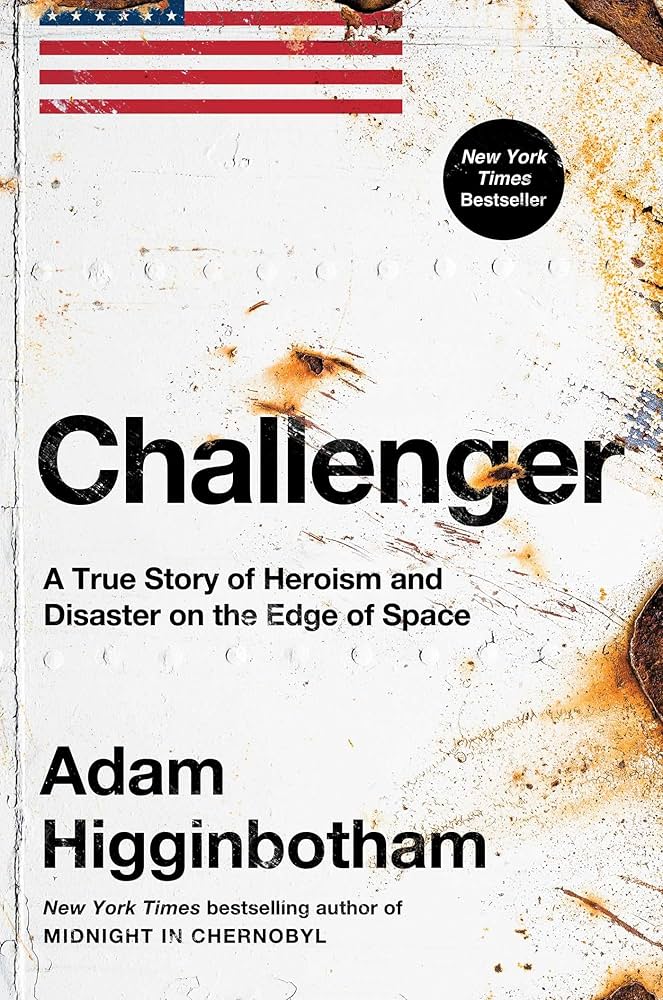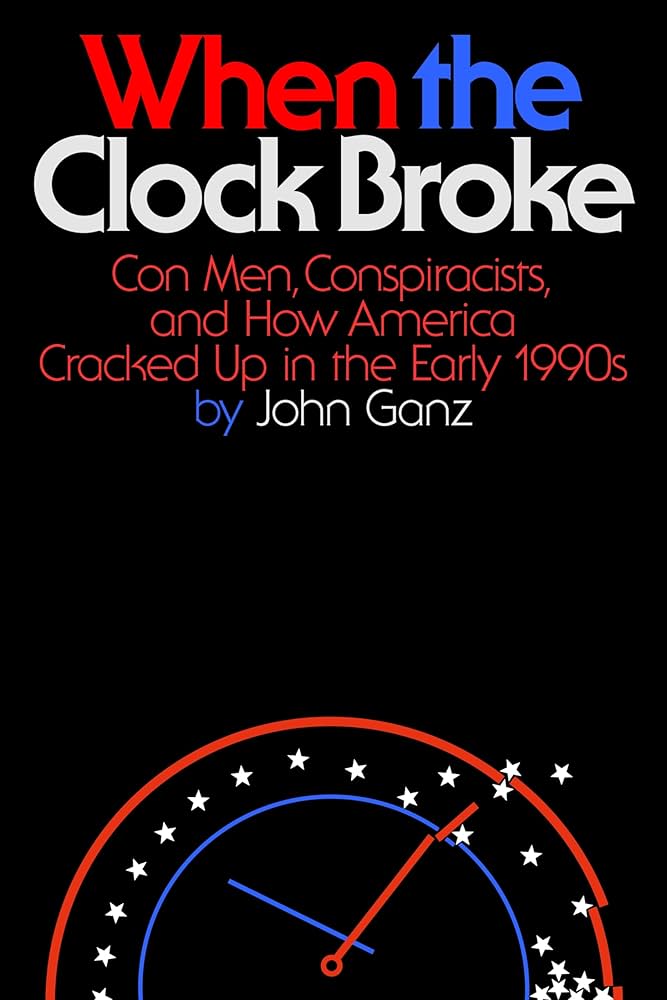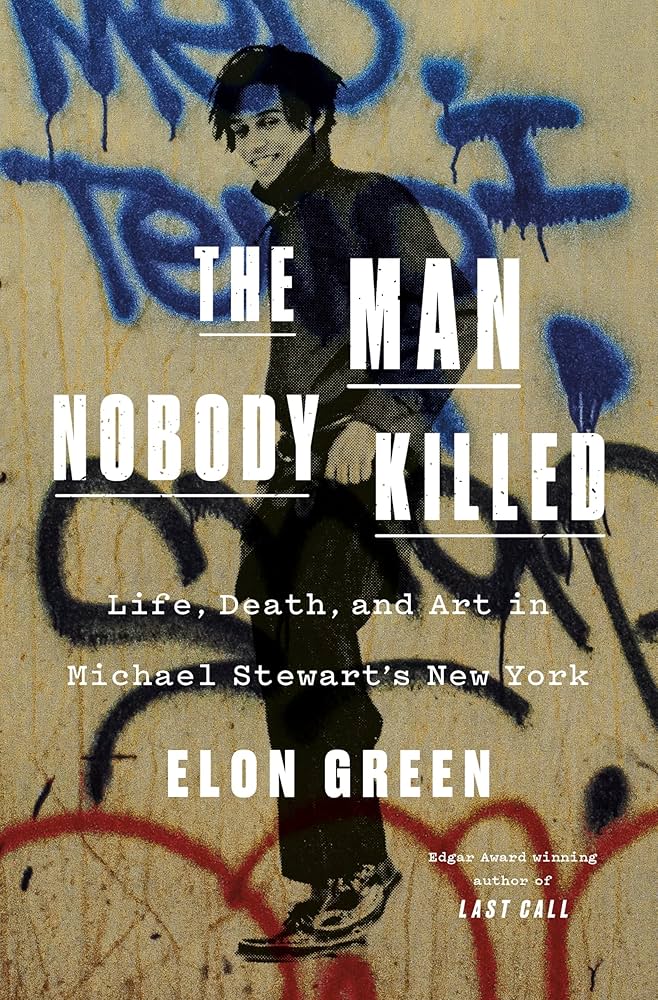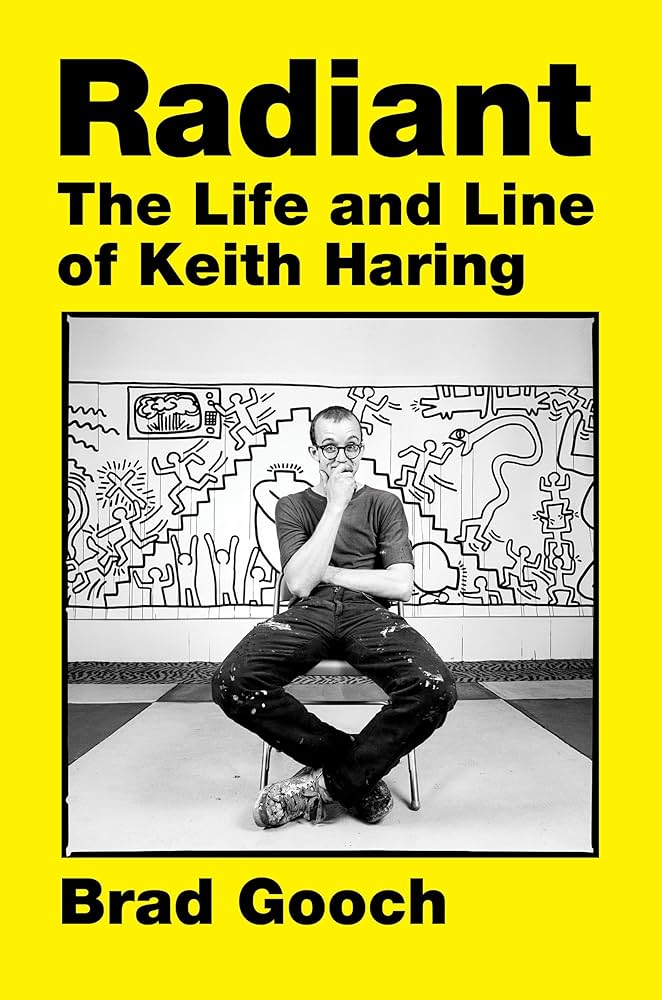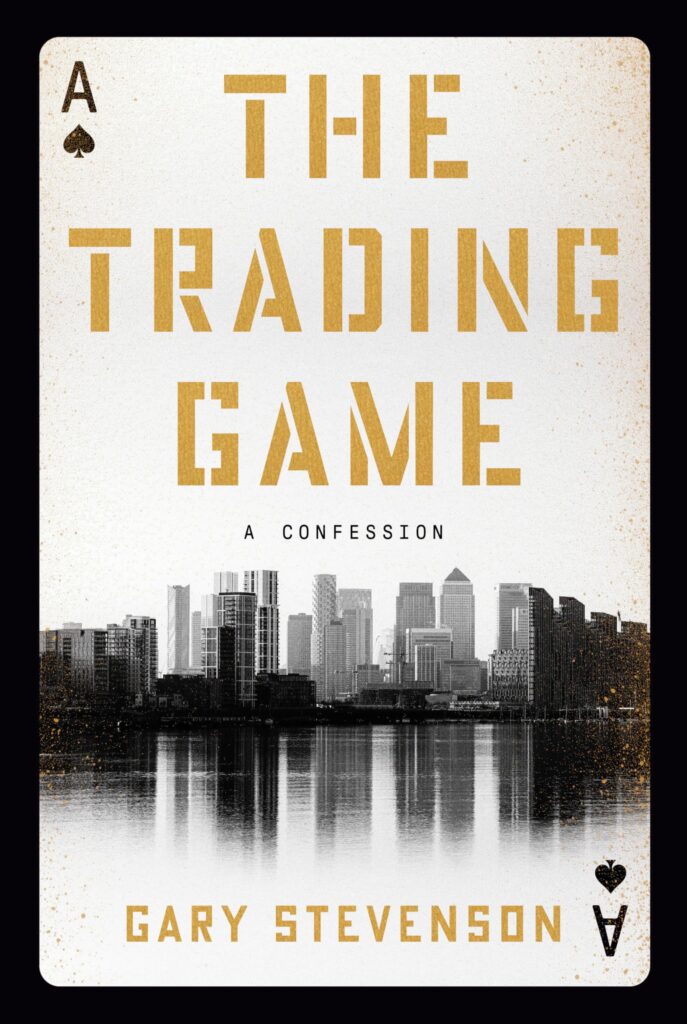True crime books often get heat for glamorizing the killers at the expense of humanizing the victims, getting caught up in psychology and grim details at the expense of empathy and humanity. Then along comes something like Last Call or Missing from the Village and shows that there’s another way to do it.
Challenger was strangely reminiscent of those later books. Higginbotham excels at both describing the technical and political factors that caused the 1986 explosion of the Challenger shuttle, while shining a light on the people that were there, including the crew, their families and loved ones.
Higginbotham’s prior book, Midnight in Chernobyl, was pretty much as good as it gets for the genre; Challenger exceeds it.
The book opens with a short, upsetting chapter from the day of the tragedy, then skips back in time to the beginning of the space race. It introduces key figures in the NASA Shuttle Program (including several that were dramatized in the first season of For All Mankind, which you should watch). He draws clear lines that connect WWII to the Space Program, including how German scientists like Wernher von Braun evaded punishment for his Nazi activities by sharing German technology with the US Government.
Higginbotham goes deep on the complexity and expense involved in the safety procedures developed for the space program, and why they exist. It’s informative and detailed but never dry. He details the waning national and media interest in the space program after the moon landing and the economic circumstances that ended the Apollo program. This opened the door for the Space Shuttle, with wildly optimistic aspirations for flight frequency, and yet limited budget and staffing turned it into a kind of meat grinder.
At this point the narrative splits in two: one thread follows NASA management and Morton Thiokol, the contractor that made the faulty components. In agonizing detail, we watch as they allow budget cutbacks, hubris, and leadership failures to subvert the safety process. The other follows the seven astronauts who eventually boarded, and died on, Challenger in 1986 — their family life and training, enthusiasm, and anxieties in the leadup to the launch.
The book shines when Higginbotham is profiling the people involved. Not just the astronauts, either: one of the strongest profiles is of Roger Boisjoly, the Thiokol engineer who first diagnosed the faulty o-ring when the Columbia narrowly escaped disaster in 1985. Fighting bureaucracy, weak-willed management, and budget and timeline pressure, it’s easy to root for him, and his struggles carry real tension and anxiety, even though the outcome is not in question.
But the most memorable figure is Christa McAuliffe, the high school teacher who was the winner of a contest meant to re-energize the public interest in the program and symbolize the future of space travel. I teared up as Higginbotham described how McAuliffe touched those around her – other teachers, competitors, and contest judges among them. He bookends a chapter with an interview she did with Johnny Carson. Here’s the audio, it’s excellent listening:
As the disaster approaches, time slows down, and the story begins to take on the cadence of a ticking clock – the days leading up to the launch are described on an almost hour-by-hour basis, tension building the whole way. One chapter describes a conference call between NASA and Thiokol teams the night before launch, as Thikol engineers try to stop the launch against the NASA team’s determination to proceed. It’s stressful, riveting and infuriating reading, on par with any fictional drama.
The launch itself and the aftermath for the families of the astronauts is upsetting and distressing. The media hounds the grieving loved ones, then turns to the investigation, pushing against NASA administration for a more complete assessment of blame.
The final section documents the search efforts for wreckage and the Senate investigation into what went wrong, unfolding like a courtroom drama. Nobel-prize winning physicist and notable weirdo Richard Feynman makes a memorable appearance as a foil to the status quo. There is so much that I didn’t know, about the explosion itself, the salvage operation, and what they discovered when they found the crew capsule. In typical fashion, the whistleblowers faced the harshest consequences. Nobody goes to jail.
It’s an unforgettable book that will certainly wind up on a bunch of best-of-2024 lists. Higginbotham has outdone himself: it’s a flawless piece of nonfiction writing.

